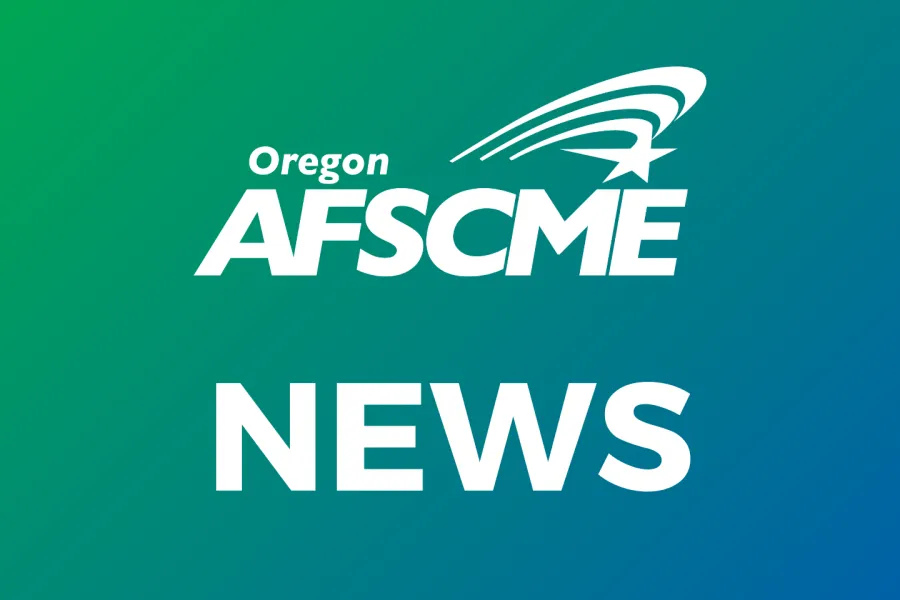Congresswoman Salinas joined AFSCME members on World Mental Health Day to advocate for more resources for behavioral health workers

SALEM, Ore. – On World Mental Health Day, Rep. Andrea Salinas (OR-06) joined AFSCME-affiliated behavioral health workers, apprenticeship program staff and Jose Coll, provost and vice president of Academic Affairs at Western Oregon University, for a roundtable discussing the state of mental health services in Oregon and beyond. Professionals in behavioral health shared their experiences from the field and examined some of the major issues impacting providers today – including short staffing, the lack of community access to quality mental health options, and the safety and well-being of front-line workers. As co-chair of the bipartisan Mental Health Caucus, Rep. Salinas discussed legislative plans to improve care and strengthen the mental health workforce.
Nationwide, AFSCME represents over 50,000 essential workers in mental and behavioral health. Rep. Salinas is a strong advocate for the services behavioral health professionals provide for their communities.
[Click here for downloadable photos from the event] **Full video footage of the event available upon request**Congresswoman Andrea Salinas said:“Mental and behavioral health professionals sacrifice so much to care for our communities. Sadly, these heroes are often overworked, underpaid, and underappreciated. If we truly want to address the mental health and addiction crisis in this country, we first have to make sure that our workforce has the resources and support they need to do their jobs. That’s why I’m grateful to Oregon AFSCME and our local mental health and substance use treatment providers for joining today’s roundtable. We had an open and honest discussion about everything from breaking down barriers to entry in the profession to ensuring sufficient staffing and reimbursement. I look forward to continuing these conversations and working to implement policies that will bolster our health workforce for the future."
Porter Clements, AFSCME Local 1790 president and bilingual outreach & enrollment specialist at Portland’s Outside In, said:
“Like many of my colleagues, I have personally benefited from the types of services we provide. And I find it very gratifying to help people who are in need ... but the main challenge is short staffing ... a lot of clients are coming to us with complicated relationships with institutions, and there’s a real trust issue. So, what happens is short staffing leads to high turnover and creates this cycle where a client is spending valuable time building trust and relationships with new caregivers, instead of healing ... funding behavioral health systems at an adequate level, and removing the false choice between client care and employee’s well-being, would go a long way.”
Haley Coupe, interim Healthcare Programs supervisor at the United We Heal Career Pathways, said:“United We Heal was created because AFSCME saw a serious need in the behavioral health workforce. The first trend I’m seeing with current workers is that caseloads are very high, which makes turnover high, and makes burnout a common reason for individuals leaving the field .... Many are drawn to this work due to their own lived experience with addiction or mental health. So, United We Heal seeks to help these individuals with paid training, free education, and supportive services to help mitigate some of these barriers.”
Jose Coll, provost and vice president of Academic Affairs, Western Oregon University, said:
“The relationship between our institutions and their employers and employees is critical. Similar to what we would call shared governance in higher education, the voices of employees in what is an extremely important and stressful work environment is paramount to achieve best practices that reduce harm and increase wellness. Patient care is ‘central,’ but so is the wellness of our employees – self-care needs to continue to rise as a topic of conversation in order to reduce burnout.”
